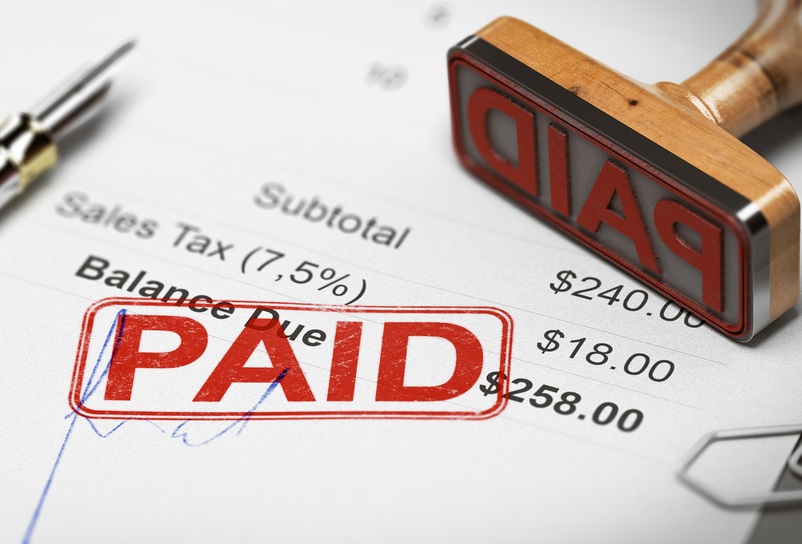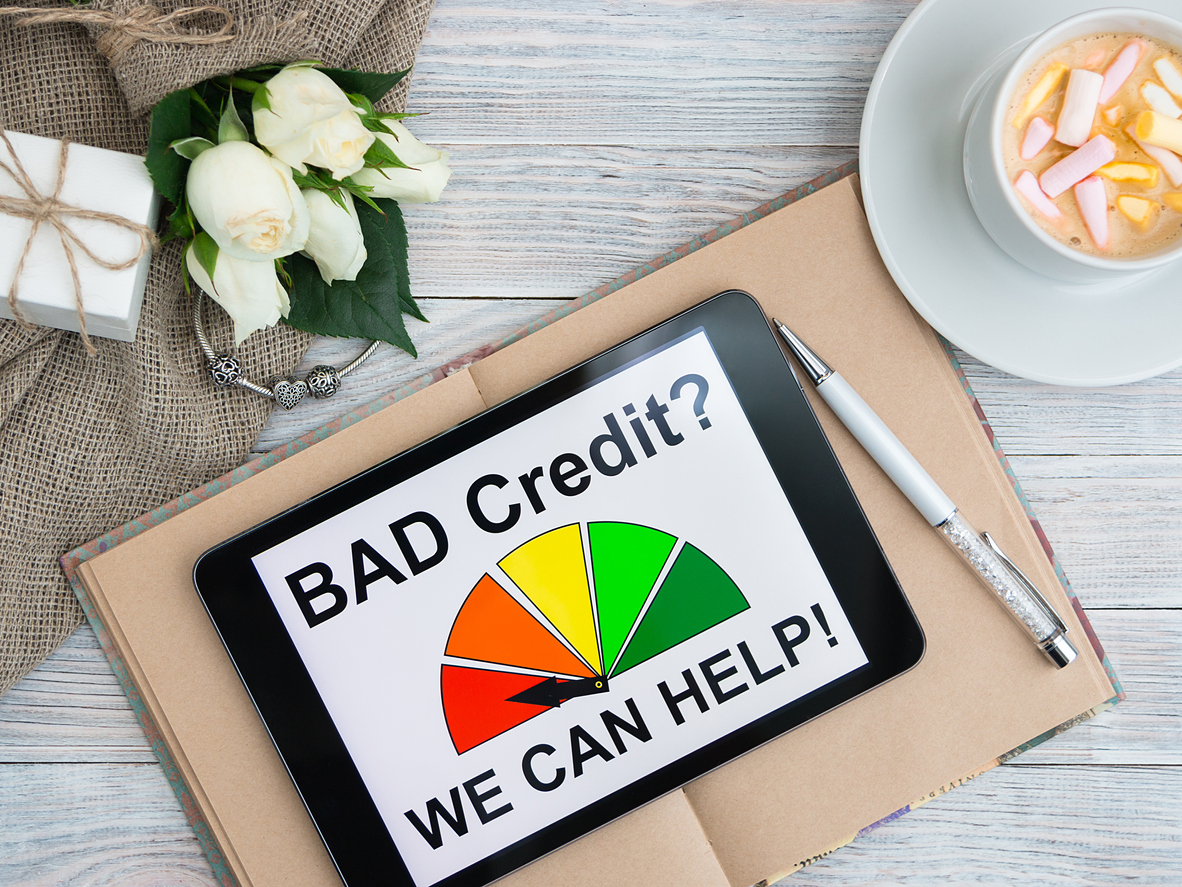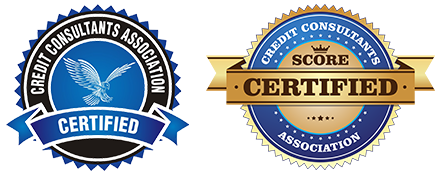- Home
- FAQ
Frequently Asked Credit Repair Questions and Answers!

Credit repair questions and answers for everyone trying to repair their credit score.
You have credit repair questions. We're providing answers. Short, concise explanations in one convenient place, we will post our credit repair questions and answers in our blog monthly. Bookmark this page and come back often. You may have new questions as your journey to improve your credit continues.
The 38 Most Frequently Asked Credit Repair Questions and Answers:
1. What Is Credit Repair?
Credit repair is the process of cleaning up your credit report to improve your credit score. The cleanup process may include various actions, including disputing and removing inaccurate or incomplete information. The goal is to build a history of positive information while limiting or eliminating negative information.
2. How Long Does Credit Repair Take?
It depends on various factors, including the amount of negative information on your credit report, the type of negative information, and the length of your credit history. If you continue to make poor financial choices and new delinquent accounts get added to your report, the credit repair process will take longer.
You may speed up the process by putting a freeze on your credit unless you need to add a credit card or loan to boost your credit score intentionally. Focus on making all payments on time, paying down credit card balances, and eliminating outstanding debt for the fastest results.
3. What Items Can You Help Me Remove?
You can only dispute credit report information that is inaccurate or incomplete. For example, you may dispute late payments on a credit card if you know that you were never late on payments.
You may also have collections accounts or other debt entries disputed and removed if they don't belong to you or are inaccurate in some manner.
For negative information that is accurate and complete, you can have them removed outside of the dispute process. That may include contacting the creditor to request deletion in exchange for partial or complete payment.
Types of negative information that you may remove in some manner include:
- Late payments
- Collections accounts
- Credit card balances
- Account status
- Charge Offs
4. Does Checking My Credit Score Lower It?
Checking your credit report or score is considered a soft inquiry and will not lower your credit score. Hard inquiries are made by creditors when you apply for a credit card or loan and may lower your credit score, but you can check your scores at any time with no penalty.
5. What Is A Credit Report?
A credit report is just a record of your financial history, and Transunion, Equifax, and Experian are three credit reporting agencies collecting that information. Creditors report when you make payments late or on time, open a new account, and take other actions that impact your financial standing.
From buying a car to having a credit card shut off or having a medical bill sent to collections, it may all end up on your credit report.
6. What Is Credit Monitoring?
Credit monitoring programs keep track of changes to your credit report in real-time. They send you notifications if anything changes, like adding a new account or changing account status.
If you're trying to improve your credit score, monitoring your credit report can help you detect problems or improvements quickly.
7. What Will Help Raise My Credit Score The Fastest?
It depends on the current problems with your credit report. Depending on your circumstances, the following actions may have the fastest impact:
- Paying down credit card balances
- Increasing maximum credit card spending limits (without adding new charges)
- Adding a new account (credit card, line of credit, loan, etc.)
- Disputing and removing collection accounts or charge-offs
- Asking creditors to remove late payment reports
- Arranging to have damaging information removed in exchange for partial or full payment
If you have an outstanding debt that has been on your report for close to seven years, you may get the best results by simply waiting for them to "fall off" your credit report around the seven-year mark.

8. Should I Monitor One Bureau Or All Three?
It's best to monitor all three credit bureaus. Not all creditors will report to all three bureaus, so you may miss new information if you aren't watching all reports.
9. What Will Have The Most Significant Negative Impact On My Credit Score?
Payment history and credit utilization have the most significant impact on your credit score. That means late payments and accounts with high balances will have the most negative effect.
10. Will An Authorized User Help To Build My Credit History?
If you add an authorized user to one of your credit cards, you authorize the creditor to report your payment history and balance to the authorized user's credit report. It won't impact your credit history, but it will impact theirs.
If you're added as an authorized user on someone else's credit card, it will have an impact on your credit history.
If they make their payments on time and keep their balance low, it could extend the length of your credit history and help you build a history of on-time payments and responsible credit card use.
11. How Is My FICO Credit Score Calculated?
Basic FICO credit scores are calculated based on the following information:
- Payment history – 35%
- Account balances – 30%
- Length of credit history – 15%
- New credit – 10%
- Credit mix – 10%
There are a variety of specialized FICO scores that are calculated with different percentages. FICO is the most commonly used credit score used by most banks and creditors. There are several FICO scores, and the most common is FICO 8.
12. How Much Will Credit Repair Cost Me?
Credit Repair doesn't have to cost you anything beyond the money you may invest in paying off old debt or reducing your credit card balances. If you're willing to do the work and have the discipline to remain consistent, you can do everything yourself.
We provide detailed DIY credit repair information on this site to help consumers like you boost their credit scores without paying hundreds or thousands of dollars for simple actions.
If you want a professional's guidance or prefer to have, someone else do the work for you, paying a credit repair specialist is necessary.
The prices vary but watch out for agencies and programs that promise to improve your credit score in just weeks without telling you precisely what they will do to get those results. **Credit Repair Questions and Answers**

13. What Do Credit Bureaus Do?
Credit bureaus sometimes referred to as credit reporting agencies (CRAs), are companies that research, collect, and maintain a record of your credit information.
Some of the information credit bureaus may collect include identifying info such as your full name, Social Security number, address, DOB, as well as information on your credit lines such as payments you've made and balances you owe.
They also track:
- Credit limits
- Current balances
- Homeownership
- Closed accounts
- History of late and on-time payments
- And collections
Credit bureaus then sell this information to all lending institutions to decide to grant loans. Therefore, credit reporting agencies' primary goal, including Transunion, Equifax, and Experian, is to ensure that lenders have the information they need to determine a consumer's creditworthiness.
Credit reporting agencies have no say in deciding whether or not you should have credit extended to you; they merely collect and maintain consumers' credit information and makes it available to lending institutions. As a consumer, you can also be a credit bureaus client and receive the same information about your credit history.
14. Can I Have A Credit Score And Report Without A Credit Card?
Yes. Have you been using credit? As long as you've used credit in the past — it could be a mortgage, student loans, or an auto loan — you have a credit report and a score even if you have never used a credit card. Keep reading for more credit repair questions and answers.
15. Why Do I Need Credit Reports From All Three Credit Bureaus?
Get your Free Annual Credit Report - If you've been monitoring your credit reports, you're probably wondering why your credit scores are different. Well, this could be because of several reasons. Credit bureaus don't always give equal weight to the same factors when compiling your score, for starters.
Also, creditors don't always report to all three credit reporting agencies, which means each bureau may maintain different information regarding your credit lines. As a result, other consumer information generates a different score.
You need reports from all three major credit-reporting firms, and having access to the three reports puts you at an advantage in identifying discrepancies. Just because your credit report from Experian doesn't have a collection account doesn't mean the account doesn't exist if Transunion is reporting it.
16. What Is The Fair Credit Reporting Act, And What Role Does It Play?
The Fair Credit Reporting Act is legislation enacted in 1970 with the sole purpose of protecting all American consumers by making sure that all their personal and credit information reported to the credit bureaus is PRIVATE, FAIR, and ACCURATE.
17. Do You Have Incorrect Information In One Or All Your Credit Reports?
You can dispute that information with the credit reporting firms. If they can't verify the said information within a reasonable time (usually 30 days), they must remove it from your credit reports. Thanks to the FCRA legislation, this is possible, which gives you the right to dispute any item(s) on your credit files.
18. Do Collection Accounts, Have To Be Paid Off, To Be Removed?
Not! One of the biggest misconceptions regarding credit repair questions and answers is that paying a default will raise your credit score, and this is NOT true. Collection accounts don't have to be paid off for them to be removed from your credit file.
Paying a collection or default account will not remove the default derogatory mark and may hurt your score. This can be especially disadvantageous for anyone trying to get approved for a mortgage or other loans.
Often, the best move here is to negotiate a reduced settlement or enter a payment arrangement with your creditor.
19. After Credit Repair Removes Negative Items From My Credit Report, Does It Eliminate My Debt?
No, even after you've successfully had negative items removed from your credit reports, you're still responsible for your debts. Credit repair does not erase your debt! Credit repair can eliminate negative items from your credit files, but you still owe the debts.
If the debt expires - past the statute of limitations for the lender to file a suit - collecting the debt is challenging and costly.
20. How Long Do Collections And Other Negative Items Stay On My Credit Report?
Negative items on credit reports stick around for years, but it also depends on your state.
- Hard inquiries: 2 years
- Late payments: Up to 7 years
- Public records: Court judgments five years, Bankruptcies 7 to 10 years
- Collection accounts: 7 years
- Other negative listings such as foreclosure and repossession: Up to 7 years
**Credit Repair And FICO Credit Score** **Credit Repair Questions and Answers**

21. Why Do I Need To Fix My Credit?
It's impossible to talk about credit repair questions and answers without addressing the elephant in the room – is there a need to repair your credit?
It depends because your credit score will influence your ability to secure credit in the future. Simple! But of course, there's more.
Credit repair has always been essential. Creditors, including mortgage lenders, have long relied on your credit report and score to make lending decisions. Creditors also rely on credit scores to determine how much interest individual consumers will pay on loans.
And lenders aren't the only ones who depend on credit scores when making financial decisions. Today, property owners, employers, and even insurance companies tap into your credit information.
Everyone with horrible credit risk missing out on cheaper insurance premiums and even their dream job. Repairing credit to have a strong credit score is the key to a stress-free life in today's society.
22. Can I Repair My Credit On My Own?
Yes, you can fix your credit on your own. You have the right and ability to repair your credit yourself. Some of our clients have tried credit repair themselves, only to find that the process is complicated and confusing.
23. Should I Hire A Credit Repair Firm?
The truth is, with a bit of dedication and patience, we can do most things ourselves. We can treat an open wound, fix a broken phone, and even build our own homes from the ground up.
But how often are we better off allowing professionals to take the reins and perform all these services rather than ourselves? So, why wouldn't you want experts handling your credit repair as well?
We take the headaches of disputing off your hands and have the knowledge, resources, experience, and unique techniques to speed up the credit repair process.

Here's a look at other benefits that experts bring to the table:
- Offer a debt management program for those having a tough time making payments on time.
- Write a letter of explanation addressed to your lender.
- Write a goodwill letter and even negotiate for a pay-for-delete option on your behalf.
- Sending cease and desist letters to creditors and debt collection firms asking them to stop calling you.
- Get penalty fees stopped and negotiate to have your account re-aged.
- Educate and train you to rebuild your credit. This will include teaching you how to review all three credit reports and providing you with tools and expert techniques to implement the plan.
- Coach you long term on how to maintain an excellent FICO score
- Address all credit repair questions and answers. And more.
- The easiest way to build credit.
24. How Does Credit Repair Work, Exactly?
Typically, after you've scheduled a consultation and signed up for credit repair services, we will run a high-level review and investigation with your credit providers and all three credit bureaus. We will request documents containing all the details about the accounts leading up to your credit reports' negative items.
We then go through your credit files with a fine-tooth comb and try to identify any errors or reasons why the listing shouldn't be on your credit report. If we find mistakes or incorrect information, we will have the creditor or collection agency ask the credit bureaus to remove the listing.
The world of credit repair is vast and complex. Disputing errors is only the tip of the credit repair iceberg. It pays to have a credit repair guru in your corner.
25. When Is The Best Time To Start Credit Repair?
Yesterday! However, the answer primarily depends on your goals. Perhaps you've started a family and want to secure a mortgage for a bigger house.
Or maybe you're just tired of getting denied access to loans and credit cards. If you're dealing with either of these situations, you might want to get started with credit repair ASAP.
Ultimately, whether you have horrible or excellent credit, regardless of your credit and overall financial goals, credit repair can help you raise your score, monitor for identity theft, and allow you to start leveraging the benefits of a high credit score.
Remember, credit repair is NOT an overnight solution to your horrible credit. While most people experience success in as little as 30 days, the process of fixing terrible credit typically takes longer. For this reason, you'll want to get started as early as possible. The earlier you get started, the faster you can begin reaping the rewards of an improved credit score.
26. Why Are Results Sometimes Different?
Sometimes, when credit bureaus and the creditors have done everything in their power right, there may be no possible case you can use against them. But, on average most clients have been able to remove up to 70% of the negative items from their credit reports over time.

27. Will Credit Repair Work For Me?
Yes, absolutely! So long as negative items in your credit report qualify for dispute. Are you worried that derogatory items on your credit report don't qualify for the dispute process? Don't Worry. A survey spearheaded by the Federal Trade Commission (FTC) revealed that one in five (that's 20%) has an error in one of their credit reports.
Numbers don't lie, and if we make a calculated guess from the current statistics, there's a good chance you could also have errors in your credit files. So the answer to the question of whether credit repair will work for you is very much a definite, "Yes, but…." Again, credit repair will only work if the items qualify for dispute.
We will scour through your credit reports, and if any item on your credit report is not 100% correct, 100% verifiable, or timely, we will work on it until we get it removed or corrected.
28. Can Credit Repair Remove Anything From My Credit Reports?
It is inappropriate, unprofessional, and a downright lie for anyone to promise to remove anything from your credit report. As you've probably noticed when reading through these credit repair questions and answers.
We've emphasized that credit repair, DIY or professional, can only remove items that fall under the Federal Credit Reporting Act's guidelines.
Credit repair can successfully remove those inaccurate, out-of-date, false, unfounded, or erroneous items.
29. How Do I Confirm, That A Listing Has Been Removed Successfully?
Creditors are notorious for making false promises to get you to pay default loans. After all, they are for-profit businesses and will do anything to get their money, and that may include telling you they've removed negative items when they have not.
To confirm that disputed items have been removed from your credit report, request a credit report from the three major CRAs (Experian, Transunion, and Equifax) and check for yourself to see if the listing has been removed.
In addition to reviewing your credit reports after disputing incorrect items, we will confirm with both the creditor and the bureaus that the items have successfully been deleted.
Credit Repair Questions and Answers!

30. Is Credit Repair Legal In All States?
Yes, credit repair is 100% legal in all states. As highlighted by the Federal Credit Reporting Act, you have the right to dispute erroneous, out-of-date, unfounded, or false information that may be present in your credit report as a consumer. That means credit repair is legal regardless of where you live.
A good percentage of consumers are skeptical when it comes to credit repair. Mainly because of the negative press surrounding credit repair companies in recent years.
The horror stories of credit repair companies scamming consumers and offering unrealistic expectations are all over the internet. Unfortunately, it has swayed the media's coverage and the public's perception of credit repair as a whole.
Since this article aims to tackle most credit repair questions and answers, it would be incomplete if it did not address this hot button issue.
The reality and truth of the matter are that credit repair is legal and works. Many legit and transparent credit repair firms such as Better Credit Booster LLC offer honest, transparent, and reliable credit repair services.
31. Is My Information Secure If I Sign Up For Credit Repair Services?
Yes, we implement a stringent privacy policy protecting all your valuable personal and financial information.
Considering the recent rise in cybercrimes, including the recent Experian data breach that hit close to 24 million customers, you must confirm that your personal information is protected and are on secure servers.
32. Can Deleted Accounts Reappear On My Credit Report?
Items should not come back as long as the item was reported current or paid at the time of the removal or if the collection account is older than three years.
Negative accounts that have been removed from your credit report may reappear later if verified by the creditor. But according to the (FCRA) Fair Credit Reporting Act, credit bureaus must notify you before they can re-report an account that was removed. The FCRA makes it hard for creditors to relist negative accounts, which does not happen often.
33. Can Minors Have Credit Reports?
Yes, they can - even if they have never borrowed money or used credit cards? It's possible when identity theft is involved, and early detection is critical. That's the very reason why you should start looking into credit monitoring for minors, Now!
34. When Can I Teach My Children About Credit?
We learned about the importance of good credit when it was too late for most. Let's change that and give our children a jump start on good credit. You can do this by adding them to a card as an authorized user. To fully benefit the child, you want to utilize the credit cards correctly and always pay on time.
Here are four helpful tips for giving your child credit:
- Make them authorized users without giving them a card
- Make sure you pay the credit card on time
- Keep balances on the credit card below 30% of the credit limit
Once they are in their teens, teach them how to utilize credit cards.

35. How Does A Credit Repair Agency Operate?
A credit repair agency will send letters to the three credit bureaus disputing negative information in your credit file and demanding a reinvestigation of the disputed items. If the data cannot be re-verified within 30 days, it must be removed from your credit report.
36. What Is The The Fair Credit Reporting Act?
The Fair Credit Reporting Act. This law is all about what can and can't be put in your credit report. According to this law, information that's inaccurate, outdated, unverifiable, or incomplete isn't allowed to be put on your credit report.
You now have the right to dispute all errors that you find, and you can dispute directly with the credit bureaus or even with the creditor. You also are given the right to buy a report from any of the 3 reporting agencies, plus you can get a free credit report each year.
37. What is The Fair Credit Billing Act?
The Fair Credit Billing Act is another credit law that enables consumers to correct errors in bills from credit companies. Some of the errors include unposted credits, unposted payments, changes to the card that is unauthorized, or charges for items that you never received.
38. How Do I Get Started With Credit Repair?
It's easy; you can kick things off by knowing what's on your credit reports. So, start by asking for your credit reports from all three credit reporting bureaus and immediately review the contents looking for inaccurate or false information.
If you find any incorrect, false, or unfounded information, dispute it with the creditor or credit bureau that reported the information.
Or you can reach out to us to get the ball rolling ASAP.
View Our Pay Per Deletion Credit Repair Pricing - Here
Credit reporting firms, namely Experian, Transunion, and Equifax, are required by law to investigate disputed items and respond within 30 days.
We provide affordable and reliable credit repair help if you get overwhelmed or confused at any point in the credit repair process.
Even if you don't have the time to learn about credit repair and take action personally, we're your go-to for comprehensive help that is always legal. We customize our approach to every client, ensuring that you never pay for services you don't need. **Credit Repair Questions and Answers**
Bonus: When is the right time to invest in credit repair?
When you realize your credit score isn't as high as you would like or there are issues with your credit report, it's time to start the repair process.
Don't wait until you're unable to secure a home loan, a car dealer charges a high-interest rate, or you're unable to secure a credit card with lucrative travel rewards.
Take action now so that you're prepared to make significant financial moves when the time is right in your life.
**Credit Repair Questions and Answers**
Want to See More Credit Repair Questions and Answers?

Do you have a credit repair question that you don't see here? Let us know so that we can provide the answer for you and others. Check back often and read more credit repair questions and answers as they are asked.
Thanks -
Vince
Free 5-Day - Start Repairing Credit Challenge - Do It Yourself - Including A Live Expert Question & Answer Session.

Related Articles:
- What Is The Debt Collection Statute Of Limitations For My State?
- 101 Credit Tips to Boost Credit Score Points, Today!
- Is Credit Monitoring Worth It? Don't Be Surprised By Your Credit Score!
- What Is Derogatory Credit? Remove These 8 Marks To Raise Your Credit Score Overnight!
- Better Credit Booster News and Tips
- How to Start Repairing Credit - Getting Started With Credit Repair!
- Credit Report Score Range Meaning Explained in Terms You Can Understand!
- Affordable Credit Repair Specialist Near Me Who Is Worth Considering
- Top 8 Tips to Raise Your Credit Score!






